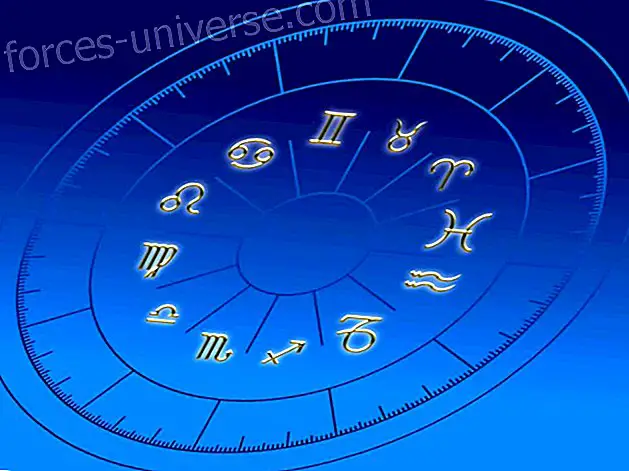Four Toltec Agreements: A look at how to relate to others from a spiritual perspective
- 2018

"There is no reason to suffer. The only reason you suffer is because you demand it that way. Happiness is a choice, as is suffering. ”
- Don Miguel Ruiz
Today there are difficult times. We are immersed in a dizzying pace and many times empathy is not natural to us. In addition, with the development of new technologies, communication is becoming increasingly difficult as well. That is why today it is urgent for us to learn again to care for and work interpersonal bonds . Impatience, intolerance and our own insecurity will be the great enemies in this task, but we also have some guides.
The Four Toltec Agreements are perhaps the clearest and most precise guide in this regard. This warrior and pilgrim people of ancient Mexico teaches us the importance of relating in a sincere and genuine way. And by means of four simple laws, it assures us the right life in community.
You will also see that they are not easy laws to comply with all the time. However, if we review any conflict between two people, we can see that at least one of these four Toltec agreements is always lacking .
But first, who were these masters of ancestral wisdom who come to us today to help us in this difficult task?
The Toltec Culture
The Toltec culture was the expression of a pre-Columbian people belonging to the Nahuatl . They dominated the northern Mexican highlands between the 10th and 12th centuries AD. C. In fact, they marked their passage through the earth with some stone statues which they call Los Atlantes .
The word Toltec is of Nahuatl origin ( Tōltēcah, plural of Tōltēcatl ), and its meaning could be ' Dwellers of Tula ' ( Tōllān "Tula", its city, and Tēcatl "dweller of"), although there are also those who say that it means " Master builders . ”
This wandering people traveled for a hundred and four years to settle in their first city.
They were of great influence for the Mayan culture, and they were recognized for their mastery of the arts and their wisdom. His polytheism was based on a duality and divine antagonism represented by his most important gods: Quetzalcoatl, the feathered serpent related to fertility, creation and culture, and Tezcatlipoca, the smoking mirror, related to heaven, earth, war And the darkness They used to sacrifice the gods of prisoners of war and had a fascination with astronomy because it connected them with the different deities.
Among his esoteric knowledge, the four agreements of Toltec wisdom referring to the principles of behavior is perhaps the most prominent.
The Four Agreements of the Toltec Wisdom
This esoteric knowledge has been transmitted from generation to generation until today. Miguel ngel Ruiz Mac as, better known as Don Miguel Ruiz, is a Mexican doctor and a descendant of the n huatl Guerreros del guila clan . He is also the author of the book in which he conveys the spiritual wisdom of the four agreements .
They guide us through behavior towards others.

First Agreement
In his book "The Four Agreements", Don Miguel Ruiz clarifies that this is perhaps the most important of all, and at the same time the most difficult.
The first of the four agreements says: 'Be impeccable with words'.
Words have the power to help, and to hurt. With them you can do good or evil . Being impeccable with our words implies that we use them wisely, being honest and seeking to communicate accurately.
What comes out of your mouth reflects the person you are inside . If you are not honored with your words, then you are not being with yourself. Be consistent, authentic and respectful. This will be the energy you spread throughout the world.
The energy that is contained in the words is printed from our emotions, and in turn they impact the emotions of those who listen to them. Be careful with them.
In the four agreements, Don Miguel Ruiz reminds us of the magic that is contained in our words, and the influence they have on others. In that way, we are all magicians, and we have the ability to build or destroy depending on the use we give them.
The word " impeccable " implies not sinning with your words. Do not do evil with what s says .
Second Agreement
Although Miguel Ruiz tells us that all the remaining agreements follow from the first, the second does not have to do with the words that come out of our mouth, but with those that the others direct us.
The second of the four agreements says: 'Don't take anything personally . '
Just as we established that everything we say reflects the person we are, this applies to everyone. He who speaks to you is letting himself know . Your assessment is not the value you really have.
A person who uses his words to do evil actually shows that he is loaded with poison. It is because he does not know how to unload all that poison that he carries inside that expels him against you (and usually with many other people).
But that problem is his, not yours. He is the one who will have trouble relating to other people as long as he is not impeccable with his words, not you.
Each person has their own beliefs and agreements, and what they say has nothing to do with yours. Dr. Miguel Ruiz tells us in the Four Agreements that if you take things personally you expose yourself to suffer for nothing . And this is dangerous because human beings are addicted to suffering.
Take care of your words, and make the words of others not hurt you.

Third Agreement
This is also another of the most difficult of the four agreements.
If the first agreement has to do with the words that come from our mouth and the second with the words that come from the mouth of others, the third has to do with those words that nobody says .
The third of the four agreements says: 'Don't make assumptions . '
The human being is the great interpreter of reality . We have demonstrated the ability to interpret in our own way the things that happen, the things we feel and the things they tell us. In the same way we have the bad habit of interpreting things that do not happen. Well, all these interpretations are based on assumptions .
The four agreements guide us towards good communication, and where an assumption is taken as truth, we end up reacting to a reality that is a product of the imagination. And the worst part is that many times that assumption is far from having something to do with the truth . Don't let this assumption come between you and other people. Where you doubt, ask. If you suspect, clarify things. Become true, not fantasy.
Fourth Agreement
The last of the four agreements is the one that commits us decisively to comply with the first three, and convert them into habits . It is perhaps the most difficult to measure, as it does not have to do directly with the practice of interpersonal interaction. It is instead a concept, the internal position from which we stand to carry out everything in our lives.
The last of the four agreements says: 'Always do your best' .
First of all you do, give one hundred percent . Before all the people you meet, always give one hundred percent. Never leave an effort to give, for that is the golden rule of discipline . Only giving the maximum you have is that you will achieve the maximum that you can be. And nobody came to the world for mediocrity .
When it costs you, give your maximum. When it hurts, give the maximum. No matter the result, do not give less than what you can give. Get used to giving the maximum of what is in your power. What is outside of you is no longer your field of action .
That is the Toltec Wisdom brought to us by the teacher Dr. Miguel Ruiz.
For those interested, here is the book The Four Agreements.
Implement these agreements. Take them to your life and spread the magic of your words.
AUTHOR: Lucas, editor of the great family of HermandadBlanca.org
SOURCES:
- 'The Four Agreements', by Dr. Miguel Ruiz
- https://es.wikipedia.org/wiki/College_tolteca
- https://www.cultura10.org/tolteca/
- https://en.wikipedia.org/wiki/Don_Miguel_Ruiz
- http://www.8300.com.ar/2012/07/13/los-cuatro-acuerdos-de-la-sabiduria-tolteca/
- https://www.absolum.org/mist_4acuerdos.htm






